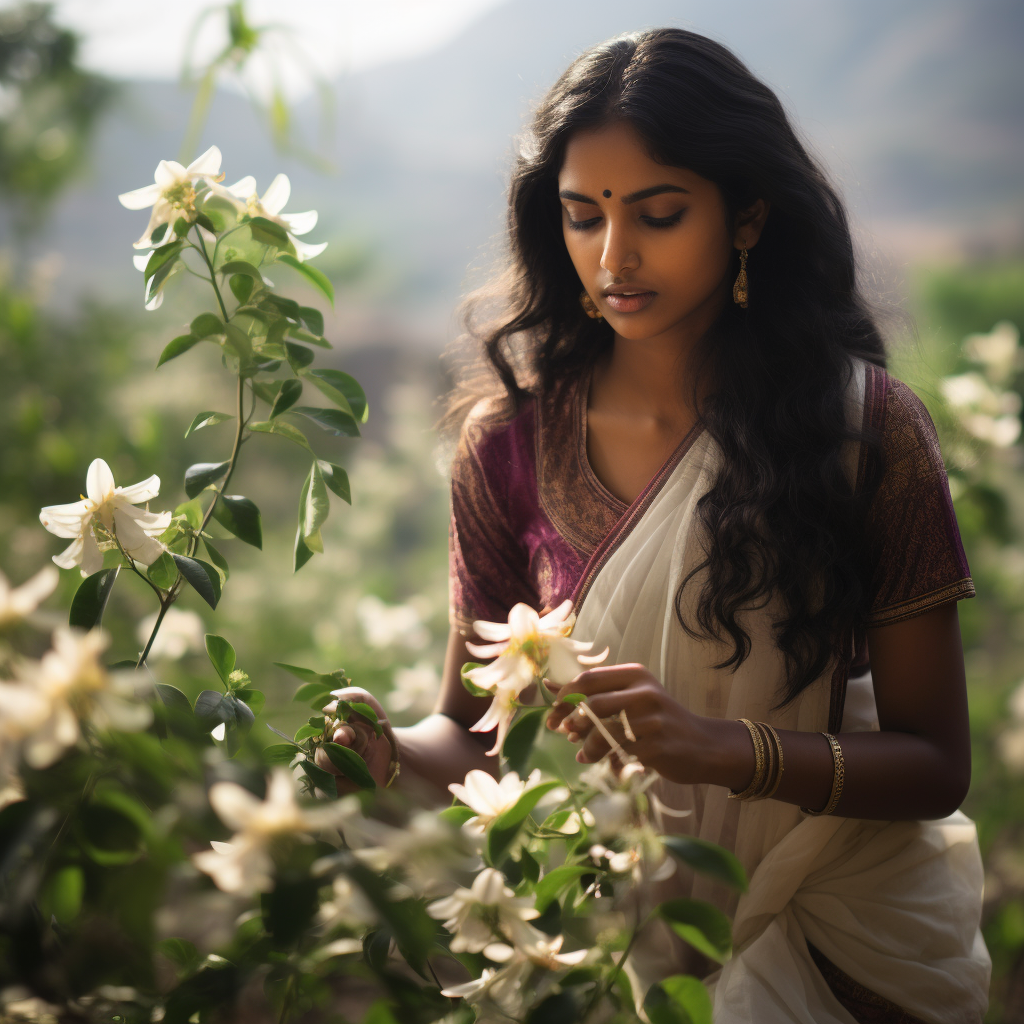
Jasmine: The Fragrant Emblem of Romance and Sensuality























Introduction: In the world of perfumery, few scents evoke the essence of romance and sensuality as profoundly as jasmine. With its rich, floral aroma and captivating allure, jasmine has cemented its place as a cherished ingredient in countless fragrances. Let us delve into the enchanting world of jasmine, exploring its fragrance, properties, cultivation, and significance in perfumery.
Fragrance and Properties: Jasmine, scientifically known as Jasminum spp., exudes a rich, floral scent that is warm, sweet, and alluring. Its fragrance is often associated with sensuality, love, and intimacy, making it a prized ingredient in perfumery. The aroma of jasmine is deeply intoxicating, with subtle hints of sweetness and warmth that linger on the skin, captivating the senses and evoking feelings of romance and desire.
Cultivation: Jasmine is cultivated in various regions across the globe, with major producers including India, Egypt, and Morocco. These regions offer ideal growing conditions, including warm climates, ample sunlight, and well-drained soil, which are essential for the cultivation of jasmine. Cultivating jasmine requires careful attention to soil quality, watering, and pruning to ensure healthy growth and abundant blooms. In many cultures, jasmine cultivation is not just a horticultural practice but a revered tradition, with artisans meticulously tending to the plants to preserve their fragrant blossoms.
Harvesting Season: Jasmine blooms during the summer months, typically from late spring to early autumn, when the weather is warm and humid. This is the peak season for jasmine cultivation, as the plants produce an abundance of fragrant blossoms that perfume the air with their intoxicating aroma. During this time, jasmine gardens come alive with clusters of delicate white flowers, creating an enchanting atmosphere reminiscent of moonlit nights and romantic rendezvous.
Extraction and Uses in Perfumery: In perfumery, jasmine is prized for its versatility and ability to add depth and complexity to fragrance compositions. Jasmine essential oil, extracted through solvent extraction or enfleurage of the flowers, serves as a key ingredient in many perfumes, imparting a rich, floral note that enhances the overall olfactory profile. Jasmine absolute, a concentrated aromatic extract, is also widely used in perfumery for its intense fragrance and long-lasting properties. Perfumers often blend jasmine with other floral, woody, or citrus notes to create sophisticated and alluring fragrances that captivate the senses and leave a lasting impression.
Cultural Significance: Beyond its aromatic allure, jasmine holds profound cultural significance in many societies around the world. Revered for its beauty and fragrance, jasmine has been associated with love, purity, and spiritual enlightenment in various cultures and traditions. From ancient mythology to modern-day rituals, jasmine has played a central role in weddings, festivals, and religious ceremonies, symbolizing purity, devotion, and eternal love.
Conclusion: In the world of perfumery, jasmine stands as a timeless emblem of romance, sensuality, and beauty, captivating the senses with its rich, floral fragrance and alluring aroma. From the sun-drenched fields of India to the aromatic gardens of Morocco, jasmine continues to inspire perfumers and fragrance enthusiasts worldwide, infusing their creations with a touch of elegance and sophistication.
With its intoxicating scent and timeless allure, jasmine remains a cherished ingredient in perfumery, weaving its fragrant magic into every bottle of perfume and leaving an indelible mark on the olfactory landscape. As we inhale the heady scent of jasmine, we are transported to a world of romance and enchantment, where love blossoms like the delicate petals of this exquisite flower.

